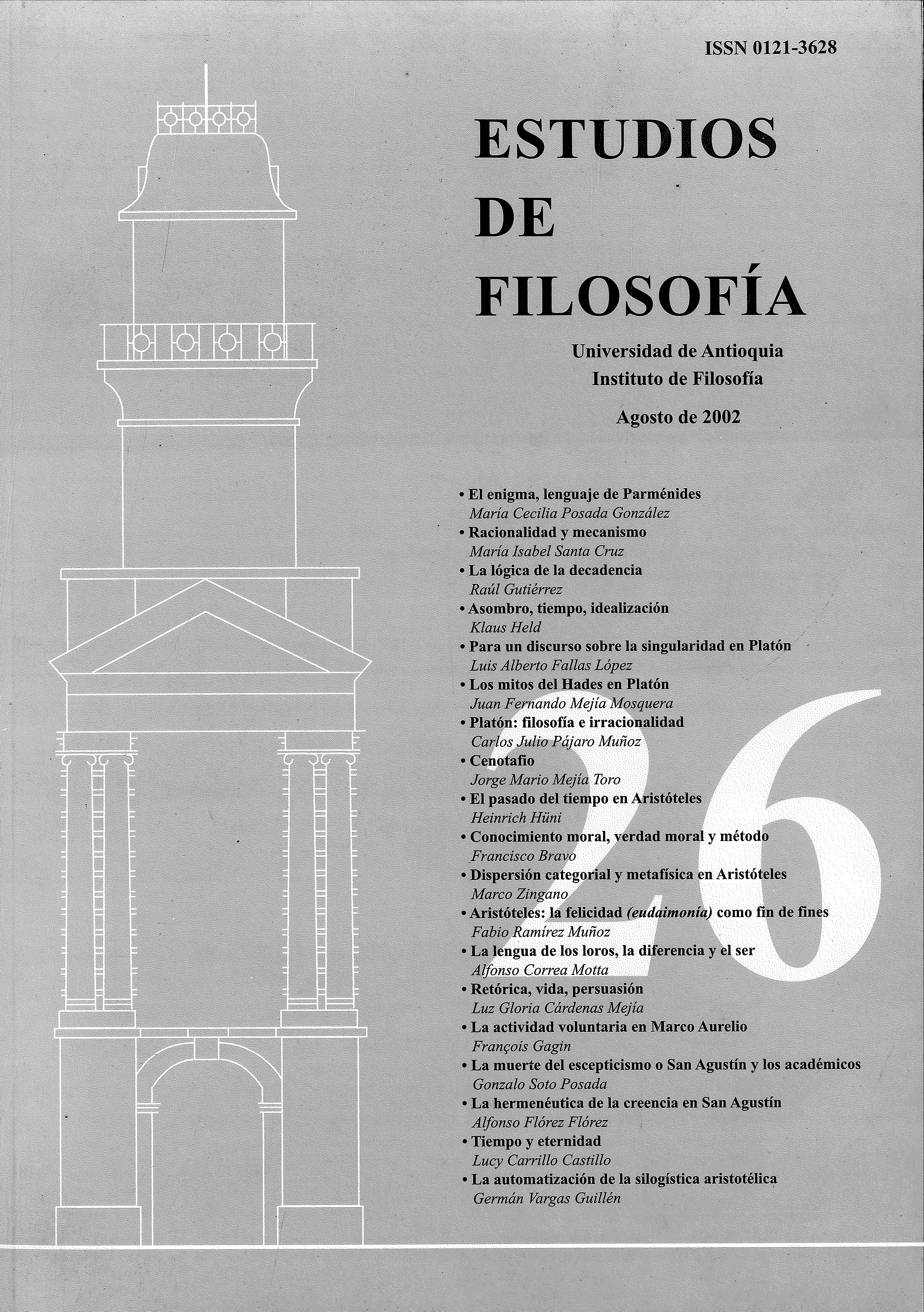Moral knowledge, moral truth and method. Between Aristotle and A. J. Ayer
DOI:
https://doi.org/10.17533/udea.ef.14974Keywords:
Aristotle, Ayer, Knowledge, morality, moral truth, methodAbstract
According to some interpreters, the process that A. J Ayer and other analytical philosophers instructed to the cognitive claims of ethics would not have taken place, at least reasonably, if these thinkers had properly understood Nicomachean Ethics VI, 2, 1139 to 21-31 , the only text in which Aristotle defines practical truth. The present communication is an analysis of this fundamental Aristotelian text, from which the existence, not only of a proper moral knowledge, different from the purely theoretical, but also of the truth that corresponds to it, which consists in a conformity not between the dictum and the factum but between the judgment of the practical intellect and the impulse of right desire. There is, then, a lived moral knowledge, which is identified with the deliberation about the means by the end of the action, and a corresponding practical truth, which consists in the conformity between the judgment of the practical intellect, perfected by the phrónêsis, and the correct desire, characteristic of the character perfected by the moral virtues. There is also a moral knowledge thought that, despite the limitations of its object, it is knowledge proper. Aristotle has tried to overcome these limitations through long and assiduous practice of the method.
Downloads
Downloads
Published
How to Cite
Issue
Section
Categories
License
Copyright (c) 2002 Francisco Bravo

This work is licensed under a Creative Commons Attribution-NonCommercial-ShareAlike 4.0 International License.
Authors who publish with this journal agree to the following terms:
1. The Author retains copyright in the Work, where the term "Work" shall include all digital objects that may result in subsequent electronic publication or distribution.
2. Upon acceptance of the Work, the author shall grant to the Publisher the right of first publication of the Work.
3. The Author shall grant to the Publisher a nonexclusive perpetual right and license to publish, archive, and make accessible the Work in whole or in part in all forms of media now or hereafter known under a Creative Commons Attribution-NoCommercia-ShareAlike (CC BY-NC-SA 4.0), or its equivalent, which, for the avoidance of doubt, allows others to copy, distribute, and transmit the Work under the following conditions: (a) Attribution: Other users must attribute the Work in the manner specified by the author as indicated on the journal Web site;(b) Noncommercial: Other users (including Publisher) may not use this Work for commercial purposes;
4. The Author is able to enter into separate, additional contractual arrangements for the nonexclusive distribution of the journal's published version of the Work (e.g., post it to an institutional repository or publish it in a book), as long as there is provided in the document an acknowledgement of its initial publication in this journal;
5. Authors are permitted, and Estudios de Filosofía promotes, to post online the preprint manuscript of the Work in institutional repositories or on their Websites prior to and during the submission process, as it can lead to productive exchanges, as well as earlier and greater citation of published work (see The Effect of Open Access). Any such posting made before acceptance and publication of the Work is expected be updated upon publication to include a reference to the Estudios de Filosofía's assigned URL to the Article and its final published version in Estudios de Filosofía.















